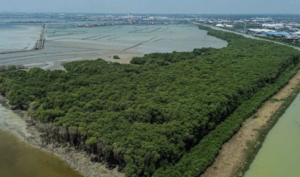Bulgaria Ranks Among Top EU Countries for Bathing Water Quality in 2024, with 97.9 Percent Rated ‘Excellent’

Brussels, The Gulf Observer: The quality of bathing waters across the European Union remained consistently high in 2024, with 85 percent of sites rated as “excellent” and 96 percent meeting at least minimum standards, according to a new report from the European Environment Agency (EEA), as cited by Agence France-Presse.
Covering over 22,000 sites across the EU, Albania, and Switzerland, the annual assessment highlights the overall cleanliness and safety of European bathing waters, reassuring the public of their suitability for recreational use. Water quality is determined by measuring bacteria levels, often linked to pollution from sewage or agricultural runoff, and classified as “excellent,” “good,” “fair,” or “poor.”
EU Commissioner for Environment and Water Sustainability Jessika Roswall welcomed the findings, saying, “Europeans can swim confidently at most bathing sites, which comply with strict quality standards.”
Top Performers and Notable Trends
Cyprus led the rankings, with 99.2 percent of its bathing waters achieving an “excellent” rating, followed closely by:
- Bulgaria – 97.9%
- Greece – 97%
- Austria – 95.8%
- Croatia – 95.2%
At the lower end of the spectrum, Albania experienced a sharp decline, with just 16 percent of its sites rated “excellent,” down over 25 percentage points from the previous year.
France, meanwhile, fell below the EU average, with 74.2 percent of its bathing sites rated “excellent” and 3.4 percent ranked as “poor.”
The report also highlighted improvements, with 67 of the 321 bathing sites previously categorized as “poor” in 2023 showing better water quality in 2024.
Coastal vs Inland Waters
The EEA noted that coastal waters generally outperform inland waters in terms of quality, thanks to frequent water renewal and natural self-purification. In contrast, lakes, rivers, and streams are more susceptible to temporary pollution spikes, particularly during heavy rains or drought conditions.
Public Health Measures
Sites rated as “poor”—accounting for about 1.5 percent of all monitored locations—must be closed to the public for bathing the following season. Local authorities are required to address pollution sources, implement remedial measures, and ensure public health is safeguarded.
The 2024 findings reinforce the EU’s long-standing commitment to water quality standards and environmental protection, underscoring the success of decades-long efforts to clean and preserve Europe’s natural bathing waters.


